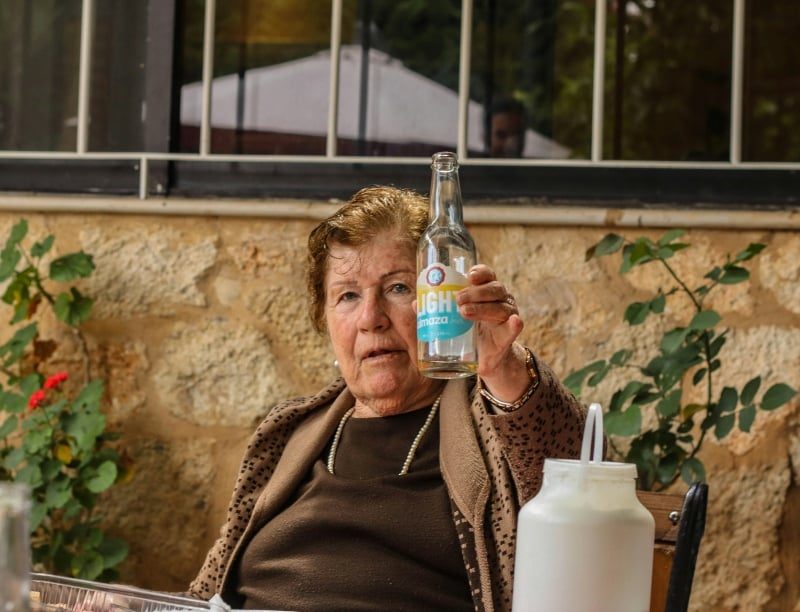
It was only a TV show, but it brought me closer to death than at any other time and caused guilt for everyone I loved.
My mum and dad were watching a drama on TV. I was living with them along with my girlfriend, Amy. As fate would have it, I went into the living room and caught a glimpse of the show they were watching. The scene was a man hanging from a noose.
For the last 20 years, I’ve suffered Post Traumatic Stress Disorder from being a police officer. One of the most distressing incidents I attended was a concern for welfare, where a young man hadn’t been seen for two weeks. He lived in a shared apartment, and neighbors reported a hideous stench.
I knew what it meant.
Upon arrival, I began kicking down his door, but there was resistance on the other side. Eventually, I got it half open and saw a sofa against the door. I pushed the sofa away and went in.
The man had hung himself on the other side of the door. He was in an advanced stage of decomposition, and medical reports estimated he had died two weeks earlier. I bumped into his legs as I entered the room.
In the UK, we call such accommodation “bedsits”. One tiny room with a bed, cooker, and sofa all squeezed in, with a communal toilet down the corridor. The windows were covered with towels instead of curtains, and the window sills were graveyards for hundreds of dead flies.
Bizarrely, a pair of the man’s underpants were hanging from the ceiling, tied to a cord as if they had hung themselves in sympathy. To this day, I have no idea as to the significance of this.
On a cluttered and dirty desk was a copy of one of the most inspirational poems ever written — If by Rudyard Kipling. The rousing, hopeful message contained in the poem was in stark contrast to the human tragedy engulfing me.
As we cut him down, I held his head as we guided him into the body bag. I also had to seize the cord he had used to strangle himself. Taking the cord back to the police station meant I brought the smell, but it hardly mattered now as I wouldn’t be smelling anything else for days anyway. After 10 minutes with a dead body, you absorb the smell into your clothes — even your skin. It always put me off food for a week — not a recommended diet.
This was one of the causes of my PTSD. I was horrified to see a hanging playing out on TV and felt sure my mum or dad would change the channel — such is the egotism of mental illness. I lived in their house, went into a room where they were, chose to watch the program they were watching, and expected them to be alert enough to turn it off because I was there.
Usually, they responded well to my egotistic demands and protected me from the big wide world. But this time, they didn’t do anything. They forgot. I suffered a flashback caused by my anger at them forgetting and my horror at seeing the hanging. I started reliving the incident I attended, and constant thoughts of horror swirled around my brain.
I longed to be understood, yet while my dad always said he “didn’t understand any of it,” my mum never failed to do the right thing at the right time, until this day. Not turning off the TV meant I felt misunderstood, and suddenly, the world looked more dangerous, and I felt more alone. It was a horrendous overreaction, but this is how the mentally ill mind works.
So, despite it being winter and dark, I decided I had to leave. I had no idea where I was going or what to do when I arrived. A neighbor saw me and greeted me, but I was in my own world, and I didn’t even notice him.
I stormed out without a jacket and headed towards the woods.
As a child, I’d been frightened of the dark. I used to get my dad to take me and my friend on nighttime drives. The thrill of being scared while feeling safe and secure in the warm car was exciting. In the police, I overcame my fear. The worst things happen at night, and I’ve searched for many violent criminals in the middle of nowhere. Yet I wouldn’t go into the darkness by choice off duty. It’s a testament to my madness that I went to the woods with complete resolve.
Heading for the pitch-black woods, I started to form the idea that death would be like this. An alluring state of nothingness — going to sleep forever and never suffering pain or guilt again. I wasn’t going to hang myself — I’ve seen many videos of people doing so, and it’s one of the worst ways to die imaginable. I didn’t have the guts or the pain tolerance to do that, never mind risk someone finding me halfway through and resuscitating me with brain damage.
As I stumbled in the dark, I wondered if I could lie under a bush and die passively. I’d heard that hypothermia was only painful at first, and then it felt like warmth. If I could grit my teeth through the initial discomfort, it wouldn’t be long, and I’d be asleep forever.
By now, the fear was creeping in. The woods were silent, but every now and then, a branch would crack, or leaves would rustle, and my imagination would run wild. So I lay in the bush. The problem was I’d brought my phone with me. I was ambivalent about suicide, and part of me still wanted to be talked out of it. I was furious at my mum and dad, so only one person could jolt me out of my horrific reverie: Amy.
The fact that I’m here to write this tells you Amy did indeed call me. I forget what she said, but she convinced me to return, provided I didn’t have to talk to my parents. I was also worried they’d call the police, and as police work caused my PTSD, they were the last people I wanted to see.
I went home freezing cold. I later learned my dad had been calling for me in the woods, but I never heard anything. I’d put them through hell, but it wasn’t long until we reconciled.
Of course they cared about me. Sometimes, we make mistakes, but this was about my hypersensitivity. It can be hellishly tough to look after someone with mental illness. It’s a thankless and gruesome task, and I’d rather be the one suffering the disease than care for a loved one experiencing the same thing.
Guilt is a big part of my mental health problems, and that night added another layer. Once I’d calmed down, the explaining phase began. I had to explain my overreaction. On the outside, it looked like a TV program triggered a flashback, but underneath was my dread of being misunderstood and left at the mercy of a world from which I was in retreat.
The situation worsened my mental health, but not because of the flashbacks — those acute episodes pass within hours, and the after-shocks last a day or two. Instead, I had put the people I love the most through pain, and the guilt was overwhelming. Even those closest to us struggle to understand mental illness, so I must keep explaining. Of course, my parents then felt guilty for my distress, which made me feel worse.
This is the reality of mental illness. You have to keep reassuring others. You spend most of the time trying to explain your mistakes instead of taking care of yourself. Your bad behavior leads to guilt, which makes you feel worse and leads to more bad behavior. This cycle is why mentally ill people are usually isolated. People don’t want to deal with that, and who can blame them?
Luckily, I have the best parents in the world, and Amy and I have been together for nearly 20 years. I don’t believe in miracles, but that’s as close to one as I’ve found.
—
This post was previously published on Publishous.
***
You Might Also Like These From The Good Men Project
 How to Lose a Guy Forever …….
How to Lose a Guy Forever …….  ..A Man’s Kiss Tells You Everything
..A Man’s Kiss Tells You Everything  ..3 Things You Didn’t Know He Wants in Bed
..3 Things You Didn’t Know He Wants in Bed  .12 Signs She’s Woman You Should Marry
.12 Signs She’s Woman You Should Marry Join The Good Men Project as a Premium Member today.
All Premium Members get to view The Good Men Project with NO ADS.
A $50 annual membership gives you an all access pass. You can be a part of every call, group, class and community.
A $25 annual membership gives you access to one class, one Social Interest group and our online communities.
A $12 annual membership gives you access to our Friday calls with the publisher, our online community.
Register New Account
Log in if you wish to renew an existing subscription.
Username
First Name
Last Name
Password
Password Again
Choose your subscription level
- Yearly - $50.00 - 1 Year
- Monthly - $6.99 - 1 Month
Credit / Debit Card PayPal Choose Your Payment Method
Auto Renew
Subscribe to The Good Men Project Daily Newsletter By completing this registration form, you are also agreeing to our Terms of Service which can be found here.Need more info? A complete list of benefits is here.
—
Photo credit: iStock
The post When You Live With a Mental Illness, You Spend Most of Your Time Explaining appeared first on The Good Men Project.
Original Article










